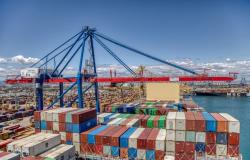Nicolás Maduro went from denying the phenomenon of migration in Venezuela to announce the creation of a vice ministry to care for those who left the country.
According to the criteria of
The interesting thing is that he does it in the middle of the electoral period, just when there is just over a month left for the presidential elections on July 28, in which he will seek his second re-election.
In fact, last Saturday, Maduro reiterated his call to Venezuelan migrants to return to the country, which will be, as he expressed, the “astonishment of South America.”
“We had a hard time (difficulties), but it was hard, and we are already improving, recovering, that is why I have told all those Venezuelans, everyone, wherever they are, (…) come,” Maduro stated during a political event in a town in Caracas, broadcast by the state channel VTV.
A week ago, the president announced the creation of the Vice Ministry of Care for Venezuelan Migration, which will be in charge of helping those who “had to migrate” and want to return to their country return to that country, although he did not specify when it will be launched. .
The president has already made four commitments to address the migrant population that decides to return to the country:
- Provide legal assistance and guaranteed identity so that Venezuelans abroad can have identity documents such as ID cards and passports within national territory.
- Attention in education. It promises to offer government programs so that returning Venezuelans can complete secondary or university education.
- Socioeconomic protection. Maduro offers financial aid to the migrant, with or without initial funds, to invest in ventures and businesses.
- Communication. In this section, the president has indicated that he seeks to provide spaces for dialogue so that, according to him, “the truth is told about our migrants” and that they can return to the country.
For at least a year, Maduro has taken it upon himself to denounce the xenophobia suffered by Venezuelans abroad. And, since the covid-19 pandemic, it enabled repatriation flights under the name Vuelta a la Patria.
Now, this new mission, of the more than 20 that exist in the country in different areas, will be headed by the director of the Institute of Higher Diplomatic Studies, Pedro Sassone.
The president of Venezuela declares motorcycle pirouettes a national sport.
Photo:Courtesy Presidential Press
But these announcements have generated criticism due to the position that Maduro had in the past with the wave of migration from his country.
“They are going to wash wells in Miami,” Maduro frequently said when referring to migrants, who according to the R4V Platform, made up of United Nations agencies, today number 7.7 million Venezuelans in forced exile.
To the Venezuelan migrants, we love you and our love makes us say, ‘Come back!’ We are waiting for you here, this is your land. Enough xenophobia and persecution.
In 2018, the United Nations Refugee Agency (UNHCR) estimated that 2.3 million Venezuelans had migrated as a result of the economic crisis that hit the country. That number meant 7 percent of the population based on 30 million.
Today, with current figures, based on 30 million, we would be talking about 25 percent of the population outside of Venezuela. That is why With the number of migrants forced to leave Venezuela, a small country will be created. By 2024, Switzerland will have 8,815,385 people, one million more than the Venezuelan exodus.
Migrants, used as negotiation instruments
Another of the accusations made to Maduro is that the Venezuelan diaspora has been used as a negotiating instrument.
To repatriate them from the United States, deportation flights were enabled from that country to Mexico and then to Caracas. However, with the reimposition of US sanctions in April, the agreement was cancelled.
Added to this is that Maduro’s concern causes surprise when, Of the 7.7 million Venezuelans abroad, only about 69,000 managed to register for these elections, especially because the consulates and embassies did not operate diligently so that a greater number of migrants could register.
In other cases, such as those of the United States and Canada, since there is no consular representation, they do not even have the possibility of registering to vote.
Migrants crossing the Darién jungle. (File photo)
Photo:EFE/ Mauricio Dueñas Castañeda
Do Venezuelans want to return to their country?
Recently, UNHCR published that of the almost 8 million Venezuelans abroad, at least 6 million are classified as displaced, after Syria and Afghanistan.
Recent studies also ensure that if Nicolás Maduro stays in power for another six years, about 25 percent of Venezuelans consider leaving the country, according to the pollster Delphos.
If Nicolás Maduro stays in power for another six years, about 25 percent of Venezuelans consider leaving the country.
On the other hand, Bloomberg published in February that for Venezuelans an economic improvement is not enough and at least 65 percent of those who migrated need a political change to return.
That the Venezuelans return has been one of the slogans of the opposition María Corina Machado. In addition, videos of her tours show how entire families ask her to “do everything possible” so that her children return.
Photograph provided by Prensa Miraflores showing the president of Venezuela, Nicolás Maduro, during a government event, on June 13, 2024.
Photo:EFE/Miraflores Press
Maduro bets everything for re-election
Against this backdrop, Maduro once again took to the streets to “meet” the people. The problem is that the images show that few people are waiting for him in the towns he has visited.
Still, he’s still on tour, which is a “surprise” because “he is the only candidate threatened with death,” according to what the president of the National Assembly, Jorge Rodríguez, has said.
However, the bases of the United Socialist Party of Venezuela seem increasingly indifferent to Chavismo. Disappointment is one of the causes. Now, betting on migrants seems like one of the president’s cards.
Of course, Maduro refuses to accept that the number of migrants is high. In 2023, during the Chiapas Migration Summit, in Mexico, the Venezuelan president assured that the number was 2.5 million migrants, very far from the 8 million that the UN speaks of.
In any case, Among these are thousands of people who tried to register to vote in the July 28 elections, but have not been able todue to the impediments and blockade that have been found in the diplomatic headquarters of Venezuela in different countries, where they protested against what they consider a violation of their rights.
Only 69,211 Venezuelans abroad will be able to exercise their right to vote to elect who will be the next president of the country.
ANA MARÍA RODRÍGUEZ BRAZÓN
EL TIEMPO correspondent
Caracas





